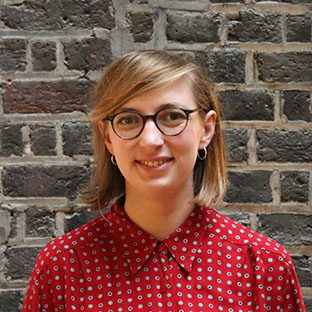According to nearly half of the citizens who responded to a recent poll commissioned by the RSA, inequality is the biggest challenge facing our society.
This may come as no surprise after a decade of austerity and the rapidly rising growth of the gap between those with the most and those with the least in our society. However, economics and public services are only two parts of the picture. A crucial but often overlooked factor that shapes our everyday lives is our sense of place, and how inequalities function differently between and within the regions, cities, towns, villages and local neighbourhoods that we all live, learn and work in.
Alongside its concern to tackle inequalities of income, wealth, health and well-being, the RSA’s Public Services and Communities Team is determined to grapple with some of the most pressing challenges that underpin the inequalities experienced by citizens in terms of their sense of place – access to affordable, good quality housing; developing practical approaches to delivering truly inclusive growth in local places; and understanding the importance of identity and heritage, and how these can be used by citizens to drive the inclusive social and economic change their places need in the future.
From the Citizen’s Economic Council to our the RSA Food, Farming and Countryside Commission, the RSA has been at the forefront of developing projects which put a range of citizens’ voices front and centre when it comes to creating solutions to society’s challenges. However, we are keen to explore how to take these approaches further in our future work, recognising that it is not for us to design and impose solutions for these challenges, but rather to listen to, work with and support the communities and citizens who are the real experts about the changes that they need, and then to draw upon our skills, resources and influence help them to make them happen.
For people living at the sharp end, it is the inequalities visible at a local level which feel the starkest and most immediate – whether that is the quality of housing in their poorer area compared to a nearby affluent neighbourhood, or how this correlates with differing health outcomes or access to affordable fresh food, good local schools and opportunities for good work.
Underlying this is the crucial relationship between place and identity - how pride, stigma or indifference around a place impacts on how communities and citizens understand themselves, their place in the world, stake in society and ability to make the change they want to see where they live. And at a time when social isolation across all segments of society is growing, it is clear that a sense of rootedness and belonging to a place that empowers and meets the needs of those that live there is increasingly important but often lacking.
For many living in the areas which have experienced the starkest rises in inequality, the EU referendum was seen as an opportunity to regain a sense of agency and opportunity. The polarisation of our public discourse has been particularly well documented since then, but these were divisions which have been evident at a local level for a long time, and in that sense only came as a surprise to those in politics, the media and think-tanks who had managed to remain removed from the range and depth of lived realities outside of the more affluent areas of the UK. It is a grim reality that the evidence is now mounting that it is precisely these places that are most likely to be adversely affected by the impact of Brexit, but it would be a mistake to dismiss the sense of disaffection and appetite for change that has grown out of this context.
Decades of economic restructuring and deindustrialisation, compounded by the dismantling of public services under austerity, has had knock-on effects on the established identities that are tied to local places and the way that people expected to live their lives in them. It is a familiar trope, (and one borne out by recent research by Hope Not Hate) that these kinds of destabilising changes, compounded with a sense of uncertainty around the future, often correlate with a rise in intolerance and prejudice against groups that look or sound different, as some look to apportion blame and promote divisive solutions. This has been evidenced by the entrenchment of extremist far-right views in pockets across the country, and how this in turn influences national debates around immigration, culture and what it means to be British.
Places such as Luton, the birthplace of former-EDL leader Tommy Robinson and a town with reported links to high-profile radical Islamists, have become the focus of significant media attention, and are often held up as exemplars of inter-community conflict and tension. This is despite the much more nuanced reality on the ground, and crucially overlooks the full range of socio-economic changes which have impacted these places over time.
This makes it more important than ever that we recognise how the experience of entrenched inequalities in a place over a long period of time can create a legitimate sense of loss and frustration, while also rejecting the responses of those who employ scapegoating rhetoric about ethnic minorities, migrants, refugees or other groups. It is also important to recognise that there are other neighbourhoods that experience challenges and do not respond in this way, but are instead galvanised into inclusive, collective action.
Groups such as the highly effective Focus E15 Campaign are explicit in their rejection of divisive prejudices, through processes of engagement and education within their community which dispels widely-held misconceptions by presenting the evidence of how different groups have much in common in terms of how they are impacted by the structural inequalities which underpin the housing crisis.
These are uncertain times and the relationship between place and identity can be complex and uncomfortable terrain. This explains why those in positions of power have tended to overlook these issues and how they have contributed to the growing polarisation of our civic discourse over recent years, but it is not a justification. Crucially, we must recognise while the adversity faced by so many citizens and communities can – and often does – sew seeds of division, it is more powerfully a galvanising, catalysing force which can be supported and channelled into driving real progressive change.
Related articles
-
Changing how we see heritage can help us build back better
Becca Antink
How the heritage sector is making a difference in local communities.
-
Counting on recovery: collecting the data to inform policy post-crisis
Tom MacMillan
We’re starting to gather evidence on community responses to the pandemic, to help shape post-crisis policy. If you are too, let’s team up.
-
Why incumbents and challenger in every sector need to examine their roots
Julia Unwin
Julia Unwin, chair of the Civil Society Futures inquiry, argues civil society organisations should focus on their own attitudes and practice




Be the first to write a comment
Comments
Please login to post a comment or reply
Don't have an account? Click here to register.